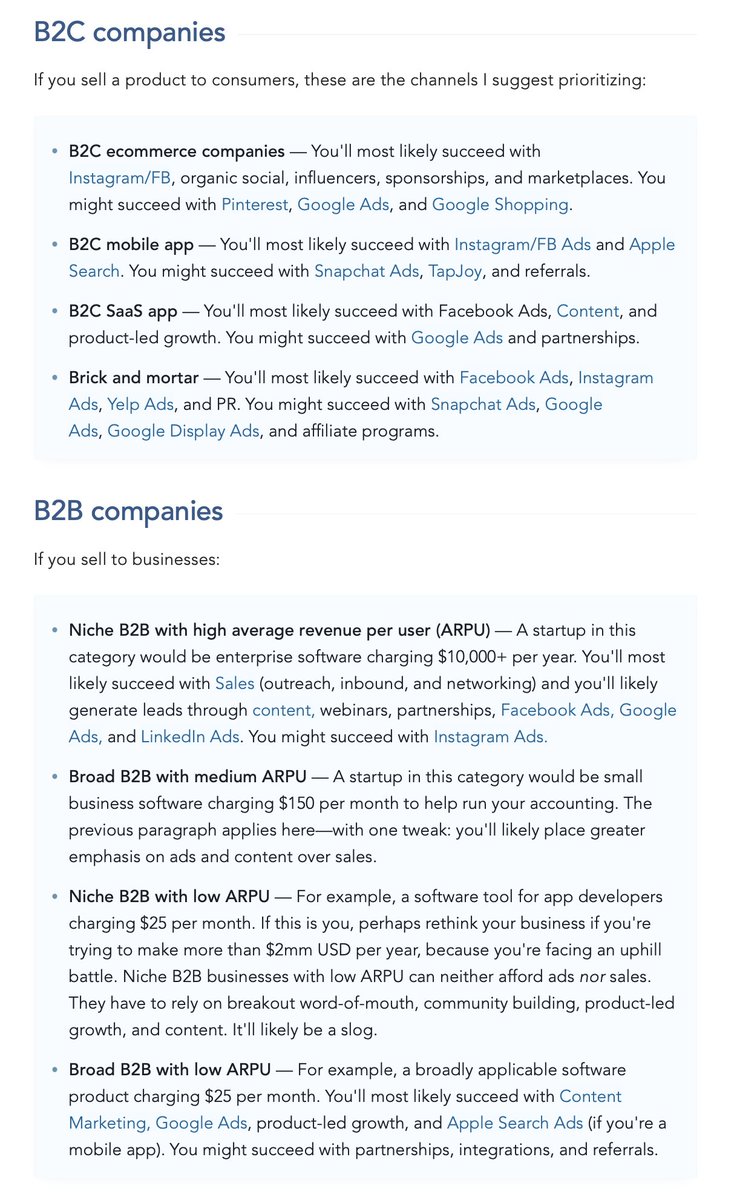Growth marketing, a timeline:
2015: "We need to go viral."
2017: "Well, we raised $25m of VC. Let's dump it on Facebook ads."
2021: "Wow. We should have been focusing on content and building a great product."
How to grow a podcast:
• Be YouTube-first; do video
• Split eps into 8min YouTube clips with SEO’d titles
• Get guests that are searched for on YouTube
• Consider not publishing bad eps
• Exchange eps with other shows
• Niche is fine, but be widely accessible
How to grow a YouTube channel:
• Describe the video's value in the first five seconds
• Ask a question you don't resolve until the last five seconds
• With YT algo, 1 amazing video > 10 good videos
• Quick cuts don't give people time to ask if they're bored
—Mr. Beast
Some tips for growing newsletters:
• Plug it at the end of a tweet thread.
• Swap plugs with other newsletters.
• Send a sample issue upon signup to excite people for future issues.
• Consider twice-monthly over weekly. My poll revealed people are fatigued with newsletters.
Two major SEO factors I look for:
1. The click-through rate of your page title.
2. Searchers not needing to return to Google after clicking your page. How?
• Write for depth
• Link to more topics they might want instead
• Start w/ a summary to show they're at the right place
Getting content ideas:
• Buzzsumo shows competitors' big content. Write about those topics
• Google Trends shows breakout topics in your industry. Cover them
• Search Reddit for good content that didn't go big. *Credit* (!) your source, remix the insights, and push it broader
Here's a LOOSE idea of which customer acquisition channels to prioritize based on your business model.
This isn't set in stone—try many channels over time.
Getting Twitter followers:
• Learn copywriting—punch + clarity
• Respond to big accounts quickly w/ insights
• Write for retweets: focus on insights + stories
• People retweet novelty, inspiration, tribal affiliation
• Bio should say why ppl should follow. See mine:
@julian
To see how competitors are running acquisition:
• View their Google Ads via Ahrefs
• View their popular blog posts via Buzzsumo
• View their Facebook ads via the Facebook Ads Library
• All of these also reveal which landing pages they're using
If you want more content on startup marketing, give me a follow. I post threads 2x/week like this.
You can see past threads here:
@julian
